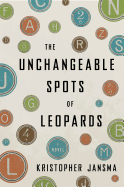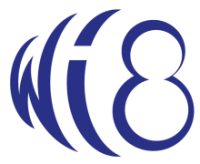 At the Winter Institute's panel on working with self-published authors, bookseller panelists discussed the importance of their consignment programs and print-on-demand machines in serving the many writers in their communities.
At the Winter Institute's panel on working with self-published authors, bookseller panelists discussed the importance of their consignment programs and print-on-demand machines in serving the many writers in their communities.
Paul Hanson of Village Books, Bellingham, Wash., suggested that booksellers call such authors "independently published authors"--and he challenged booksellers to ask if they are treating them "the way you'd like publishers to treat independent bookstores."
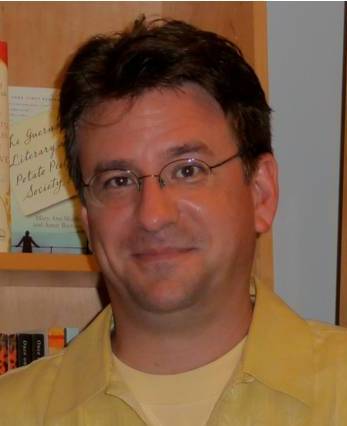 |
| Hanson |
Hanson recounted that having published several collections of anthologies put him "in the shoes of independently published authors," who, he said, often found booksellers antagonistic, which has sent many of them "to Amazon in droves."
Village Books, he said, has "one of the most professional" consignment programs, under which it charges $25 to process a book being sold on consignment; keeps the book in stock if it sells at least one copy each quarter; pays authors for sales in three months; and offers a 60/40 split. ("Be prepared to justify the split," he said. "They have no idea why we get 40%.") He added that it's important to educate authors. One example: "Tell them if they sell direct to friends and family and don't send them to us, we won't carry the book."
Village Books has a three-tiered approach to working with independently published authors. At the most basic level, it will take on books by any local author and will offer a brief consultation. "The emphasis is on education," Hanson said, including workshops that "teach them before they walk in the door." He also recommended booksellers have clear requirements for consignment programs and post them on store websites.
Hanson suggested that bookseller charge for any consultations beyond a basic 15-minute session. "You have to evaluate what your time is worth," he said.
Village Books' second tier consists of a mix of free and paid services. Hanson emphasized the importance of the store's co-sponsorships of writing seminars and workshops, like the Chuckanut Writers Conference. Village Books supplies "authors, knowledge and resources," while the partners, mainly local colleges, provide facilities and registration. "We work to strengthen the community outside to strengthen the community inside," he commented.
Village Books also works with teachers and a variety of writers groups. ("Talk about educating them early," Hanson said. "We have them in the eighth grade.")
The third tier involves publishing consultations, particularly about marketing and public relations, since independently published authors "don't know all the hats they have to wear if they don't go to traditional publishers." This level also involves publishing the books, which, Hanson said, "requires a lot more resources unless you partner with an outside printer."
Village Books has an Espresso Book Machine, which is "the largest demonstration that we support the writers in our community," Hanson said. The store's imprint, Chuckanut Editions, accounts for four or five of the store's 25 bestselling titles each year.
For the Espresso, Village Books charges $99 "to get the book in the door," then $8 per copy printed and more for added services such as design work and uploading the book to Kobo for e-book conversion.
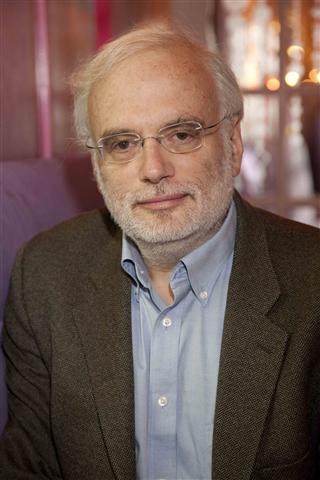 |
| Mayersohn |
Jeffrey Mayersohn of the Harvard Book Store, Cambridge, Mass., called writers "a constituency," which it serves through its consignment program and an Espresso Book Machine. "We've made a substantial commitment to providing an outlet for the local writing community," he said.
Harvard gives all shift supervisors the discretion to accept self-published titles for the consignment program, under which, the store prints three or four copies and commits to stocking the title for three months. Authors are responsible for managing the inventory and seeking payment. In part, making the authors responsible for such things insures that they have a local connection, since they must appear in the store regularly.
In contrast to Village Books, Harvard has no store imprint and considers itself a printer, not a publisher. It offers no editorial or design services, instead referring customers to others--which is another way of building community--and recommending the services of Grub Street, the nonprofit that offers writing and publishing workshops.
The biggest challenge the store has with self-published titles is marketing. But it has found that the store's popular "wall of print-on-demand shelves," located next to the Espresso Book Machine, sells a lot of books. (Self-published titles are also displayed in appropriate sections elsewhere in the store.)
The store also prints the winners of its writing contests and holds events for them, which are packed with friends and family of contributors. "At no other readings is there such pressure to buy books," Mayersohn said.
Mayersohn noted that there is a certain status to being represented by Harvard Book Store. "Since anyone can publish on Amazon, it's seen as a local distinction to have a book on the shelves in our store."
Among consignment bestsellers are Inside Harvard by the Crimson Key Society, which has sold more than 400 copies, and McLean Hospital by Francis de Marneffe, the memoir by the psychiatric hospital's psychiatrist-in-chief, which has sold more than 50 copies.
The most popular types of titles printed on the Espresso Book Machine are a range of nonfiction, particularly memoirs and self-help books, as well as novels. Most are newly published; some were out of print and have been "wonderfully successful." Altogether, the store has printed some 1,400 titles, 1,000 of which are new. Most books printed on the machine are sold outside the store.
Bestselling POD titles include:
- Three titles by short story writer and essayist Steve Almond ("our bestselling author," Mayersohn said).
- Italian Days, Arabian Nights: Coming of Age in the Shadow of Mussolini by Vittorio Palumbo
- Citizen Somerville: Growing Up with the Winter Hill Gang by Bobby Martini and Elayne Keratsis
- Elsa's Housebook: A Woman's Photojournal by Elsa Dorfman, originally published by Godine
- On the River: The Cambridge Community Poem
"Often in self-publishing," Mayersohn noted, "the commercial takes back seat to the deeply personal." Still, he added, "It surprises me how many good books there are. The bad ones are the exception." --John Mutter
[Editor's note: this concludes our coverage of Winter Institute 8. We're looking forward to WI9 in Seattle!]
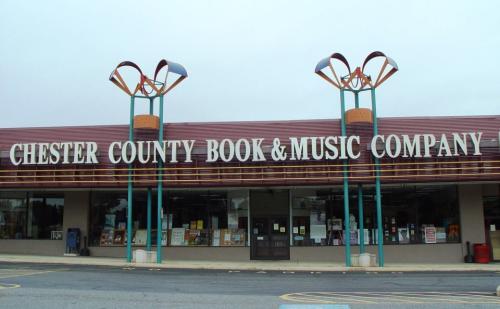 The music section of Chester County Book & Music Company is opening in April in a different location from the bookstore and with a new name, Electric Avenue.
The music section of Chester County Book & Music Company is opening in April in a different location from the bookstore and with a new name, Electric Avenue.








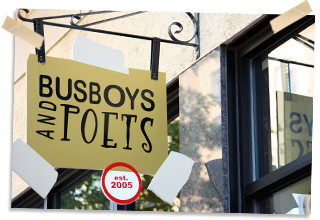 Busboys and Poets, which has four restaurant/bookstore/community centers in the Washington, D.C., area, is
Busboys and Poets, which has four restaurant/bookstore/community centers in the Washington, D.C., area, is 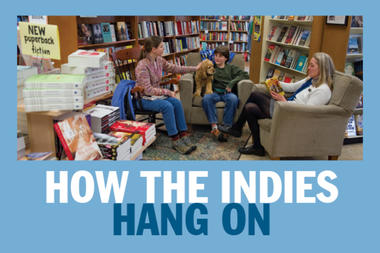 In a refreshing contrast to the general media's often superficial take on bookselling, in a wide-ranging feature called "
In a refreshing contrast to the general media's often superficial take on bookselling, in a wide-ranging feature called " Amazon is launching a
Amazon is launching a  At the Winter Institute's panel on working with self-published authors, bookseller panelists discussed the importance of their consignment programs and print-on-demand machines in serving the many writers in their communities.
At the Winter Institute's panel on working with self-published authors, bookseller panelists discussed the importance of their consignment programs and print-on-demand machines in serving the many writers in their communities.

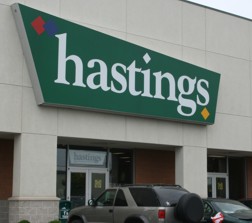 At Hastings Entertainment, in the fourth quarter ended January 31, total revenues fell 7.5%, to $141.6 million, and net income was $1.2 million, compared to a net loss of $8.4 million in the same period a year earlier. For the full year, total revenues fell 6.8%, to $462.5 million, and the net loss improved to $9.3 million from $17.6 million.
At Hastings Entertainment, in the fourth quarter ended January 31, total revenues fell 7.5%, to $141.6 million, and net income was $1.2 million, compared to a net loss of $8.4 million in the same period a year earlier. For the full year, total revenues fell 6.8%, to $462.5 million, and the net loss improved to $9.3 million from $17.6 million.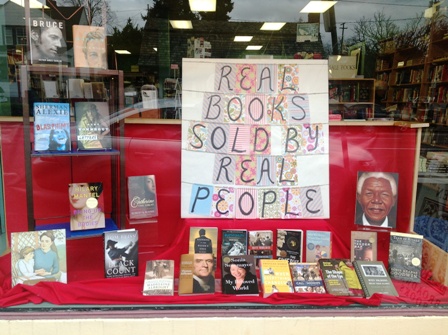
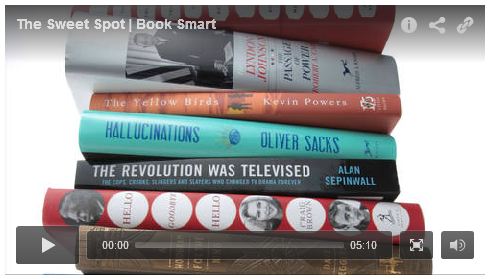
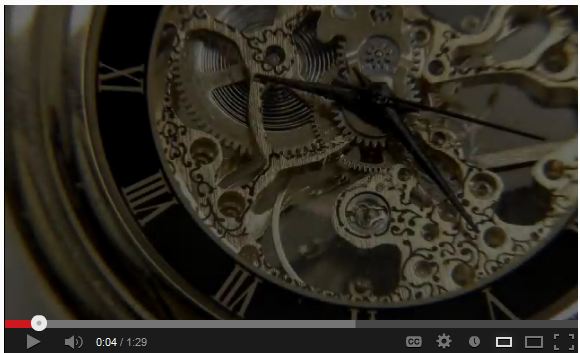 The Unchangeable Spots of Leopards
The Unchangeable Spots of Leopards
 Theo James (Downton fans will remember him as the ill-fated Mr. Pamuk) has been announced as the male lead, Four, in the film version of Veronica Roth's YA novel
Theo James (Downton fans will remember him as the ill-fated Mr. Pamuk) has been announced as the male lead, Four, in the film version of Veronica Roth's YA novel 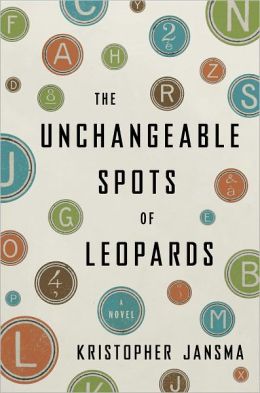 In The Unchangeable Spots of Leopards, Kristopher Jansma takes a common subject for debut novelists--the sentimental education of a writer of slender means--and renders it uncommonly entertaining through two literary devices. The first is to catapult the protagonist out of a gently funny and duplicitous bildungsroman into a globe-scorching picaresque tale. The narrator's madcap mendacities escalate across adventures in the Arab Emirates, Sri Lanka, Ghana, Iceland and Luxembourg, yet he remains sympathetic in his pursuit of literary achievement and the only two people who truly matter to him. It's a refreshingly swashbuckling approach, full of energy and surprises, not the least of which is the way the leopard of the title finally bounds into view.
In The Unchangeable Spots of Leopards, Kristopher Jansma takes a common subject for debut novelists--the sentimental education of a writer of slender means--and renders it uncommonly entertaining through two literary devices. The first is to catapult the protagonist out of a gently funny and duplicitous bildungsroman into a globe-scorching picaresque tale. The narrator's madcap mendacities escalate across adventures in the Arab Emirates, Sri Lanka, Ghana, Iceland and Luxembourg, yet he remains sympathetic in his pursuit of literary achievement and the only two people who truly matter to him. It's a refreshingly swashbuckling approach, full of energy and surprises, not the least of which is the way the leopard of the title finally bounds into view.